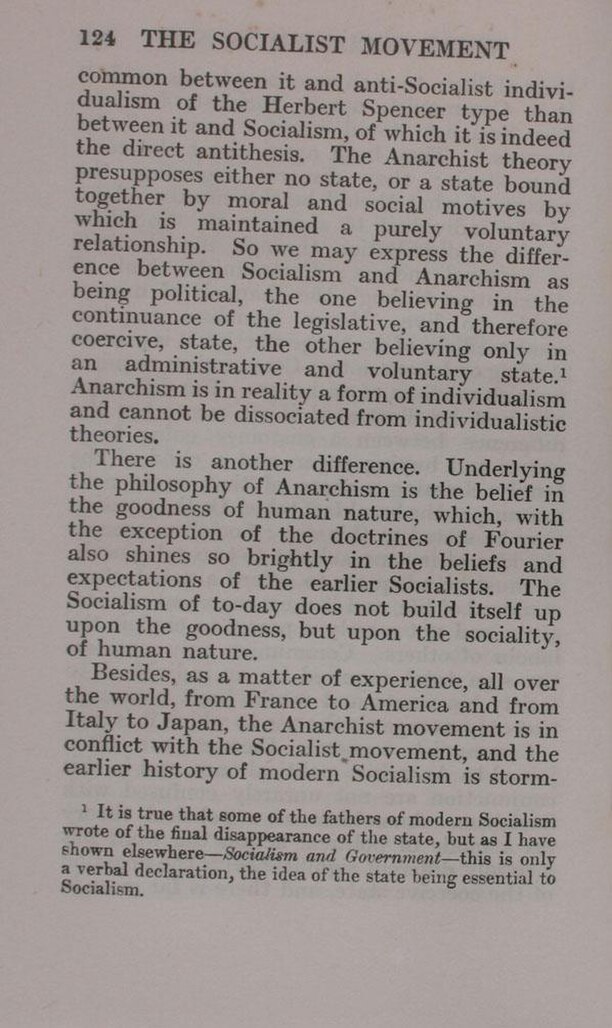common between it and anti-Socialist individualism of the Herbert Spencer type than between it and Socialism, of which it is indeed the direct antithesis, The Anarchist theory presupposes either no state, or a state bound together by moral and social motives by which is maintained a purely voluntary relationship. So we may express the difference between Socialism and Anarchism as being political, the one believing in the continuance of the legislative, and therefore coercive, state, the other believing only in an administrative and voluntary state.[1] Anarchism is in reality a form of individualism and cannot be dissociated from individualistic theories.
There is another difference. Underlying the philosophy of Anarchism is the belief in the goodness of human nature, which, with the exception of the doctrines of Fourier also shines so brightly in the beliefs and expectations of the earlier Socialists. The Socialism of to-day does not build itself up upon the goodness, but upon the sociality, of human nature.
Besides, as a matter of experience, all over the world, from France to America and from Italy to Japan, the Anarchist movement is in conflict with the Socialist movement, and the earlier history of modern Socialism is storm-
- ↑ It is true that some of the fathers of modern Socialism wrote of the final disappearance of the state, but as I have shown elsewhere—Socialism and Government—this is only a verbal declaration, the idea of the state being essential to Socialism.
